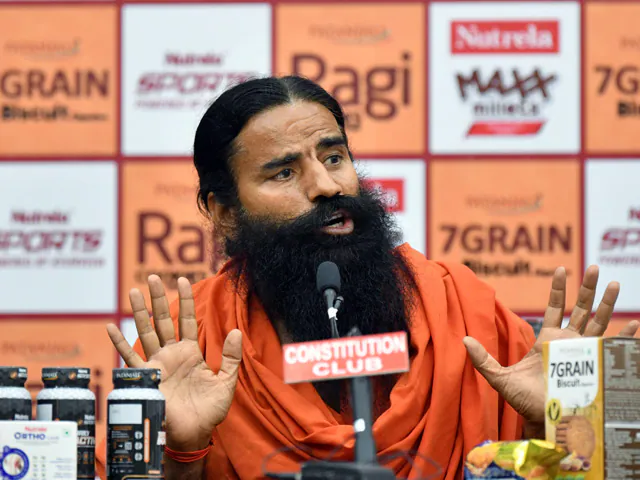Jahanvi Agarwal
During a Supreme Court hearing regarding Patanjali Ayurved’s misleading advertisements, the company conveyed its regret by stating that apologies had been published in 67 newspapers and asserted its respect for the court, promising such errors would not recur. The Justices questioned the prominence of the apology, comparing its size to Patanjali’s usual full-page ads.
Justices Hima Kohli and Ahsanuddin Amanullah inquired whether the apologetic publication mirrored the scale of their typical advertisements, stating, “Is the apology the same size as your advertisements?” which was posed by Justice Kohli. In court, Patanjali disclosed that the advertisement costs were around Rs 10 lakh.
They raised concerns about the timing of the apology, noting that it appeared just a week before the hearing. The Court directed Patanjali’s representatives, including Baba Ramdev and Acharya Balkrishna, to compile and present these ads without altering their size, emphasizing the need for them to be easily readable without the aid of a microscope: “Do not enlarge them and supply it to us. We want to see the actual size… we want to see that when you issue an ad it does not mean we have to see it by a microscope. It is not meant to be on papers but also read.”
Previously, the Bench had admonished Ramdev for potentially denigrating allopathy and ordered a public apology from Patanjali. During this session, the Justices also highlighted the broader issue of misleading advertisements by other FMCGs that potentially jeopardize the health of vulnerable groups including babies, children, and the elderly, as per Justice Kohli’s remarks. The Court decided to involve the Ministry of Consumer Affairs and the Ministry of Information and Broadcasting to scrutinize governmental measures under the Drugs and Magic Remedies Act.
Furthermore, the Supreme Court demanded an explanation from the Centre regarding a communication from the AYUSH Ministry that discouraged states from acting against AYUSH product advertisements, citing Rule 170 of the Drugs and Cosmetics Rules, 1945. The case has been scheduled for further hearing on April 30, continuing the ongoing legal scrutiny initiated by a petition from the Indian Medical Association (IMA) which accuses Patanjali of undermining conventional medicine.

